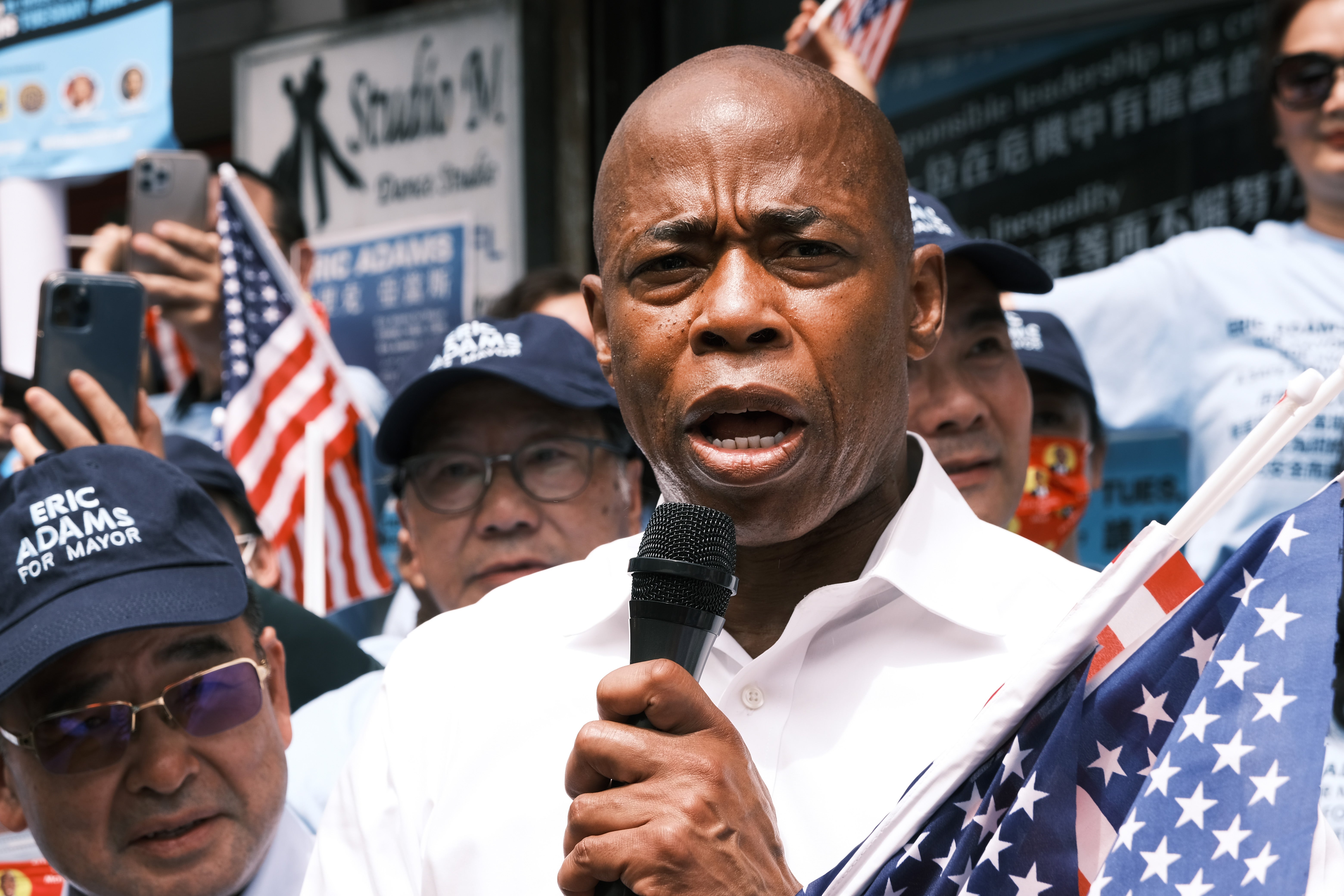The Independent's journalism is supported by our readers. When you purchase through links on our site, we may earn commission.
The New York mayoral race turned into something it shouldn’t. Now we’ll see what voters really believe
For a while, it looked like NYC was going to talk meaningfully about recovery after Covid — but then fearmongering about crime became the name of the game

If there’s one thing that this chaotic New York City municipal election has proven, it’s that our political discourse tends to be cyclical.
The city’s ascendant progressive wing had been hopeful that we would cycle back to the days of robust, early-20th century socialist political organizing or even the era of David Dinkins, who defied the political patronage structure and rode a multiracial coalition to victory in 1989. Instead, we’ve mostly landed in the world of Dinkins’ reactionary successor, Rudy Giuliani, who embodied the ill-fated carceral ethos of much of the 90s.
It’s astonishing the speed and extent to which a law-and-order trope swallowed the entire race. In a matter of a few weeks, urgency over economic and social recovery from the coronavirus pandemic — a singular catastrophe that killed over 33,000 New Yorkers and remains an existential threat to the future of the city — melted away in favor of a tabloid-style drumbeat over violent crime.
This was the perfect environment for Brooklyn Borough President Eric Adams, a former cop with just enough credibility as an ostensible internal dissident and would-be reformer of the force. Despite some crosstalk on the matter, it’s undeniable that Adams has voiced support for the failed policy of stop-and-frisk, and believes in an expanded role for police in society. The ex-police officer was always going to be a frontrunner, but it’s worth wondering if he’d be at the top of the polls right now if the conversation hadn’t shifted so conclusively to public safety.
Meanwhile, Andrew Yang launched his campaign with a burst of vapid but energetic optimism that seemed refreshing after a year of despair, to significant early polling advantages. When suddenly he faltered, as voters began to realize that New York would be reopening and life creeping back towards the pre-pandemic status quo without the need for his input, he too seized on the specter of danger in the streets. He said in the last debate that “mentally ill homeless men are changing the character of our neighbors,” a sentence Giuliani himself would probably have hesitated to say out loud. He doubled down on the eve of the election, going on Republican political gadfly John Catsimitidis’ radio show to emphatically agree that mentally ill people need to be removed from the streets.

The public fear is understandable. It’s undeniable that gun violence and homicides have ticked up, not just in New York but around the country. Crises compound, and we’ve all had quite a bit of crisis to marinate in. The feeling of stability is a fickle thing, and many New Yorkers feel like they’ve lost their grip. There are concrete if managerially complicated ways we can envision the city’s recovery from coronavirus: small businesses must be kept afloat; the looming threat of an eviction wave averted; a renewed commitment to emphasizing the health needs of underserved communities, who for myriad reasons had been set up to be ravaged by Covid since long before the virus emerged, is needed.
But these are big, convoluted questions, and it’s proven much easier to latch onto the immediacy and primal fear of violence, and what the candidates are going to do about it right now. The strategy has worked in part due to the weakness of any counter-narrative, due to an outgrowth of a feeble field of left candidates who spent their time trying to prop up their own collapsing campaigns (Dianne Morales in open combat with her own staff and Scott Stringer fending off sexual harassment accusations.) This has left Maya Wiley as the default progressive, despite a mixed record in Mayor Bill de Blasio’s City Hall and a somewhat toothless stint as head of the police’s civilian oversight board.
This race remains very much up in the air. Fluctuating polling results plus the newly implemented ranked-choice voting system makes it impossible to predict an outcome with any level of conviction (it’ll likely be weeks until we have final results). Voters may not ultimately respond to the prevailing sense of insecurity by resorting to the heavy-handedness of Yang or Adams, but the raw competence emanated by Kathryn García. She is by no means a defund-the-police campaigner, but seems at least open to standing up the NYPD’s excesses in a way that even the on-paper much more progressive yet congenitally spineless Bill de Blasio never dared to. García has, after all, spent ample time managing a large and high-stakes municipal workforce as both sanitation commissioner and head of the city’s pandemic-response food distribution network.
Perhaps the electorate will reject the fearmongering outright and elect Wiley, who has been endorsed by Rep. Alexandria Ocasio-Cortez and seems to be doing well in the polls. Still, it’s hard not to feel like the conversation has conclusively shifted back towards a tenor reminiscent of mid-90s crime mania and safety theater. It’s been largely about the police for now, but it won’t stop there.
This conversation risks swallowing the debate over the closure of Rikers Island, the administration of mental health services, sanctuary city policies, affordable housing. It’s an inflection point, and New Yorkers can choose to have sober and long-term conversations about fortifying our city against the circumstances that left so many of us vulnerable to both Covid and crime in the first place, or succumb to the short-term wiles of a police and surveillance-driven solutionism. Let’s hope those headed to the polls today choose wisely.
Felipe De La Hoz is an investigative journalist living in New York City
Join our commenting forum
Join thought-provoking conversations, follow other Independent readers and see their replies
Comments
Bookmark popover
Removed from bookmarks